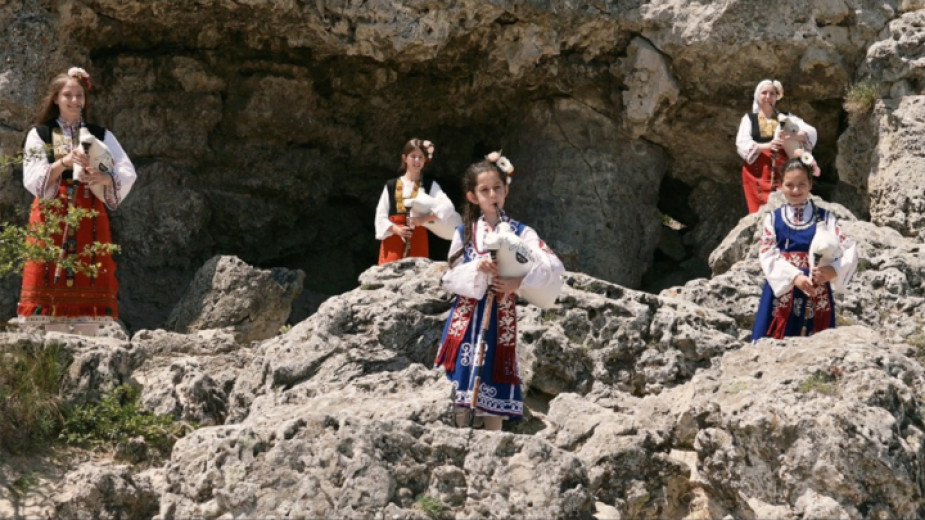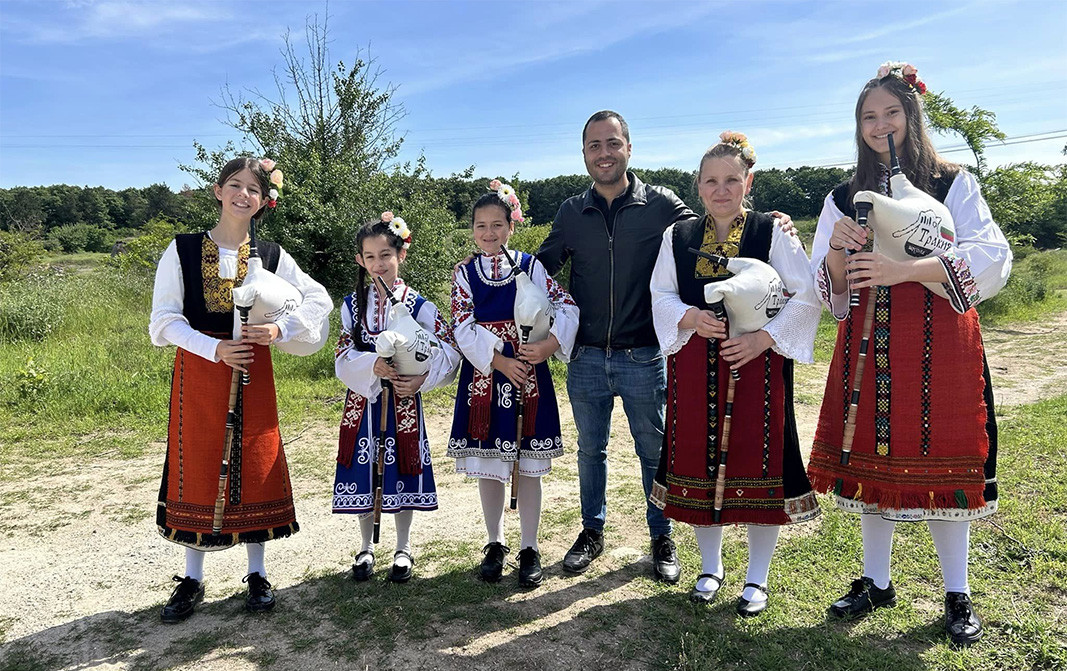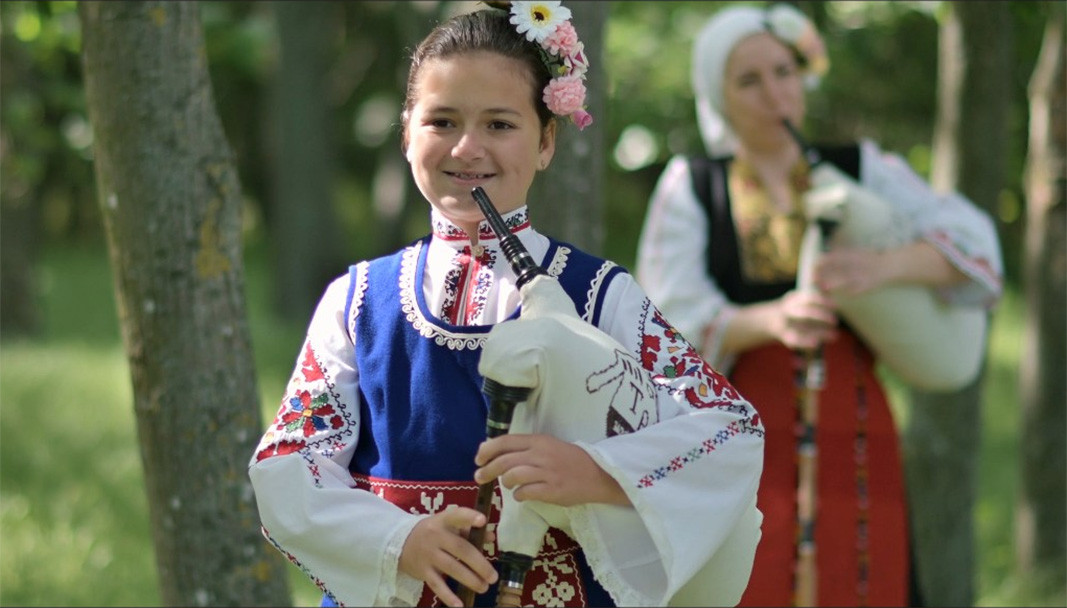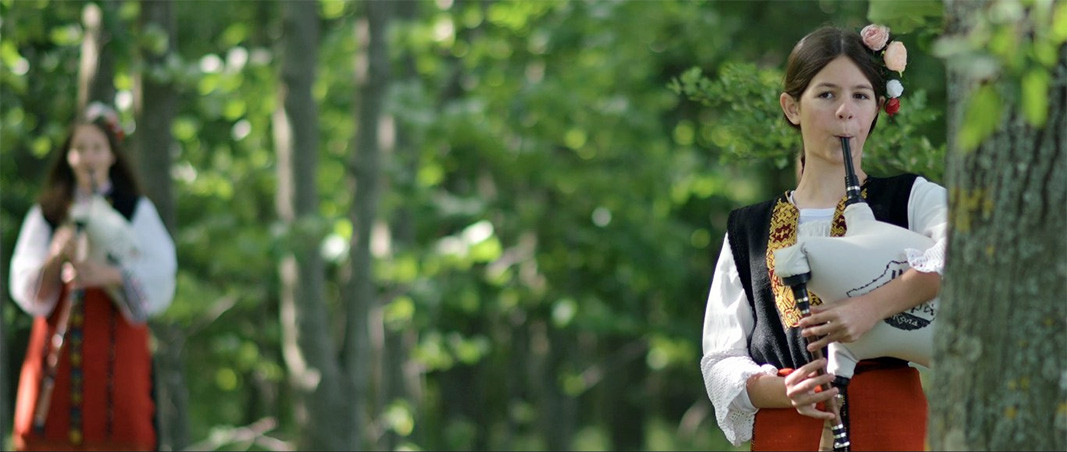 7
7
The bagpipe is one of the most characteristic folk instruments in Bulgarian folklore. Its sound is well known in the Balkans, but can be found in melodies and contemporary interpretations by musicians from a number of countries across Europe, Africa, Australia and even the Middle East. In Bulgaria there are two types of bagpipes - dzhura and kaba. The kaba bagpipe is larger in size, has a lower and softer sound. Its characteristic light rumble is encoded in the melody of the Rhodopes and is an integral element of the magic of songs like "Prituri se Planinata" and "Izlel e Delyo haidutin". The dzhura bagpipe, on the other hand, is smaller and sounds loud and clear.
In recent years, Bulgarian masters have managed to make dzhura bagpipes also from artificial materials, without affecting the qualities of instrument, which makes it much more accessible for possession and use. Although we live in an egalitarian world, you will often hear the assertion that the bagpipe is a man's instrument. The fact is that taming it to create a beautiful melody requires physical effort.

"In the past, the need for the bagpipe to sound loudly was essential, in order for it to be heard in the whole village and gather the people. The whole village had to hear about the celebration, wedding or holiday, which begins. Now the bagpipe can be made in a way that it does not require so much air and effort to produce sound. In the past it was mainly men who played the bagpipe. But with the development of music as a professional art in the past century, a woman entered the scene - Associate Professor Maria Stoyanova, who was a lecturer in the Academy of Music, Dance and Fine Arts Prof. Asen Diamandiev - Plovdiv and all bagpipe players learned from her."

Associate Prof. Stoyanova is actually the first professional female bagpiper in Bulgaria and the Balkans. She was part of the first graduating class of the National Professional Music School for Folk Arts "Filip Kutev" in Kotel, cradle of some of the best folk singers and musicians in Bulgaria. And if a few decades ago seeing a woman with a bagpipe was something exotic in our latitudes, today our country already has its first all-girl bagpipe band. This has happened thanks to Nikola Georgiev and his bagpipe school "Trakia" from the town of Aksakovo in the region of Varna. He himself has been a bagpiper since childhood. Music has been part of his family since before he was born, as his grandfathers and great-grandfathers were also pipers. At the end of 2016 Nikola with great enthusiasm and love created his school, where today more than 30 children and young people learn to play the bagpipe. What is unique about the training center is the possibility to teach children of preschool age.
"It all started because of the strong enthusiasm of a five-year-old child who wanted to play, but no other school in the district accepted him. After strong insistence from his parents and after I saw his great desire, we decided to try. This child was the experiment on which I created my teaching methodology for the youngest.”

The most important thing is to be open to the world and the surprises it offers you. So, one day, when the little sister of one of his students expressed a desire to attend the bagpipe school, Nikola accepted her. After her, another girl came, then another. Interest among the girls began to increase, and one day Nikola joked that he could now form a whole group of girl pipers. That is how, in the middle of 2024, a rendition of "Devoyko, mary hubava" emerged, performed by Ivelina, Siyana, Sara, Kalina, Tsvetelina and Viktoria on the dzhura bagpipe. The modern arrangement is the work of Nikola Georgiev himself. The youngest in the group is Siyana, just 10 years old, and the oldest is 18-year-old Kalina.

Read also:
Publication in English: Al. Markov
Photos: facebook.com/gaidari.varna, facebook.com/gaidarqbg
Joy, optimism and good mood. This is what the team of the Bulgarian Cultural Institute in Bratislava promise us. On December 8, at Teatro Colorato in the Slovak capital, at 6 p.m. local time, the concert "Let it be Jazz, Let it be..
The caretaker Minister of Culture Nayden Todorov participated in a meeting of the Council of Ministers of Culture of South-East Europe, which was held under the presidency of Montenegro and in cooperation with the UNESCO Regional..
A photographic exhibition "Sylvie Vartan and her Bulgaria", dedicated to the French music icon of Bulgarian origin, will be open to the public from December 4, 2024, at the gallery of the Bulgarian Cultural Institute in Paris , BTA reported. "The..

+359 2 9336 661
